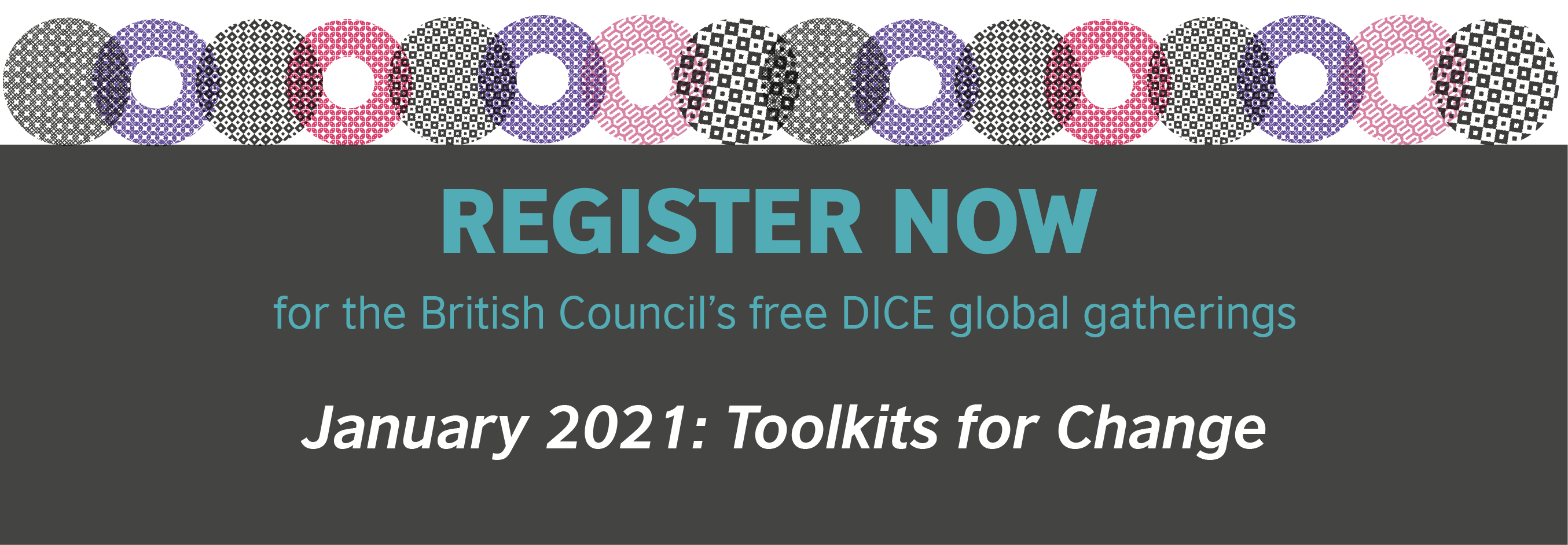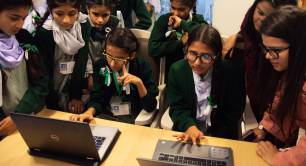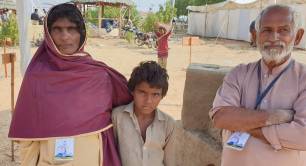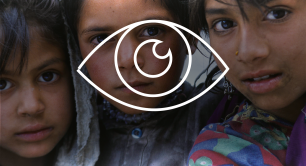From King’s Cross to Karachi: a toolkit to help social and creative enterprises scale up
Investment-worthy but not investment-ready – this is a common problem among start-ups all over the world. In Pakistan a new toolkit is helping to create a more supportive environment for fledgling businesses, building on expertise and ideas from the UK.

Do you like biryani? This mixed dish of Indian spices, rice, vegetables, meat or eggs originated in the Indian subcontinent. It can be found in most major cities around the world. The name comes from a Persian word, birian, which means fried before cooking.
If you are in Islamabad you can order biryani, and a lot of other tasty dishes, in a novel way. A start-up company called Plate 101 will let you order the food for home delivery. Admittedly a whole range of internet-based food delivery companies are operating in most of the world’s cities. But Plate 101 is different. It is a start-up social enterprise and it is focusing on women who work at home – housewives – who cook for their families. The idea is that through a technology platform women who are already cooking dishes for their families can take extra, top-up orders for delivery to paying customers. The customers get high-quality home cooking. The women get an additional source of revenue. Plate 101 calls its cooks ‘hometrepreneurs’.
Kalsoom Lakhani is founder and CEO of invest2innovate (i2i) a Pakistan-based start-up accelerator and a partner in i2i Ventures, a fund that can invest in startups like Plate 101. He explains a little more about how this particular company operates. The ‘hometrepreneurs’ are carefully selected and given training in the preparation of hygienic healthy home food. They and their dishes are profiled on the website to enable the customer to select the dish that they’d like delivered and the cook who prepares it. Kalsoom says: “If I order biryani, the woman who is already making it at home for her family cooks an extra kilogramme of it and Plate 101, as a technology platform, does all the work of collection, delivery and fulfilment and pays the cook her share of the sale.”
The company has grown rapidly and is taking more than 2,000 orders a month. A lack of mobility has traditionally limited Pakistani women’s access to the labour market, a problem at least partly resolved in this case by bringing the work to them. The start-up also requires the women to register in the formal labour market, which means that they will be able to apply for micro-loans to extend the work they are doing.
“Women can work from the comfort of their own homes, while also being part of a community. And then at the same time they can earn money. That’s pretty great. It is a company that is actually doing quite well in terms of making revenue right now,” says Kalsoom.
Start-up issues
There is however a problem. A lot of promising start-up companies like Plate 101 are springing up all around Pakistan, with exciting new ideas and good job-creating prospects. Yet a number of them simply don’t make it. Starved of investment, they die.
It is now accepted that start-ups, wherever they are in the world, need a supportive “eco-system” made up of incubators (companies that are catalysts for new ideas) accelerators (those that help them scale up for commercial operation) and venture capital and other types of investors that provide the money for expansion.
There is a massive gap between companies that are investment-worthy, but not investment-ready
A report by i2i highlights that some progress has been made, but more is needed. Pakistan now has over 24 incubators and accelerators, 80 co-working spaces, and approximately 20 formal investors. Yet there are big investment and gender gaps.
Kalsoom says there is a “massive” gap between companies that are “investment-worthy, but not investment-ready”. There is also a gender gap. The report notes that “start-ups run by men raise investment more often than their female counterparts”.
To try and tackle both those gaps i2i and UK-based Impact Hub King’s Cross have been working together on a British Council DICE Fund project called RISE – an acronym for “Ready for Impact through Scaling Enterprise”. The idea is simple: to strengthen the eco-system to support social and creative enterprises in Pakistan.
Nayla Attas, who works for Impact Hub, explains it is an international network of co-working spaces for start-ups which has also developed a curriculum of business support programmes. The programme involves the two partners jointly creating what they call a “toolbox” that will help Pakistani start-ups better navigate their development up to, and past the crucial stage of scaling up and attracting investment.
Rohma Labeeb, a project manager at i2i, says: “A lot of amazing entrepreneurs in Pakistan who have incredible ideas about change find that their businesses die because they are not able to get the right resources to scale up and secure impact. We need the companies to survive and make real change. The toolbox is one thing in their arsenal to help them do that.”
To build the toolbox there were exchange visits with key eco-system players from Pakistan travelling to London and Bradford, and UK players going to Pakistan. The toolbox is a co-created, co-designed online guide, a kind of do-it-yourself course for social entrepreneurs trying to scale up their businesses to different markets. Nayla says: “It has a self-diagnostic element and a step-by-step guide depending on the diagnosis. Each entrepreneur has different strengths and weaknesses, so it is about understanding where they are and where they need to go, along with some suggestions based on experience about the best way to get there.” Some elements come from course materials originally developed by Impact Hub in the UK, but others are tailored specifically to address the challenges of the Pakistani eco-system.
A lot of amazing entrepreneurs in Pakistan find that their businesses die because they are not able to get the right resources to scale up and secure impact
For Plate 101 the big challenge is to take the business to other Pakistani cities and possibly beyond. Other start-up companies like it are looking to the regional market, including neighbouring countries like Nepal and Bangladesh. Part of the scaling up process is to understand how best to navigate cross-border expansion.
For the moment however in Pakistan the focus is very much on launching the toolbox. “We’ve seen a lot of interest from everyone we’ve talked to here, including small and medium sized enterprises and various types of stakeholders. They have all shown so much interest in taking part in this and we are looking forward to taking it further,” says Rohma.
The British Council and the DICE Collaborators (including the organisations featured in this article) invite you to join them in a series of conversations about reducing inequalities, collaborating across borders and oceans, and operating impact-focused enterprises at a time of profound change. These free, monthly live events are co-hosted by impact-focused organisations in Brazil, Egypt, Indonesia, Pakistan and South Africa and their partners in the UK, and draw on their experience of collaborating across borders to address challenges such as youth unemployment, environmental catastrophe, disability rights, and gender inequality in local communities. Find out more and register here.
The DICE Series tells the stories of collaborations which brought together enterprise development experts from the UK with specialists working in five emerging economies – Brazil, Egypt, Indonesia, Pakistan and South Africa – during 2019-20 with the aim of addressing entrenched issues of economic and social exclusion. Read more about the British Council’s DICE programme here.





